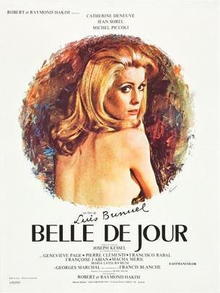 |
| Khaled Nabawy and Youssra in The Emigrant |
Cast: Khaled Nabawy, Youssra, Mahmoud Hemida, Michel Piccoli, Hanan Turk, Safia El Emari. Screenplay: Youssef Chahine, Rafiq El-Sabban, Khaled Youssef. Cinematography: Ramses Marzouk. Production design: Hamed Hemdan. Film editing: Rashida Abdel Salam. Music: Mohamad Nouh.
How refreshing to see a historical epic set in ancient Egypt that doesn't look like it was filmed at Cinecittà or on a Burbank back lot and that features actors who look like Egyptians and not A-listers in dark makeup. That's because Youssef Chahine's The Emigrant was filmed in Egypt with Egyptian actors -- with the exception of French actor Michel Piccoli, who does look a little out of place in his long white patriarchal beard. Piccoli plays Adam, the father of Ram (Khaled Nabawy) and his treacherous brothers. They're thinly disguised variations on Jacob, father to Joseph and his brethren, whose story is told in the book of Genesis and in the Quran. Chahine's movie ran into a little trouble with the censors because of where that story is told: A Muslim fundamentalist recognized the obvious parallel between film and scripture, and invoked the Islamic proscription against depicting figures mentioned in the holy book. And as if not to be outdone, a Christian fundamentalist protested that the story in the film was not close enough to the biblical account. Nevertheless, The Emigrant was a box office success in Egypt. There are other changes from the source: In the film, there's no coat of many colors, and Ram makes his way in Egypt not by exercising the gift of prophecy but by native smarts, charisma, and a thirst for knowledge. The captain of Pharaoh's guard to which Ram is sold in slavery is not called Potiphar but Amihar (Mahmoud Hemida), and his wife, who lusts after Ram, is a priestess called Simihit. She comes by her desire for Ram honestly, for not only is he good-looking but her husband is impotent -- he was one of the eunuchs who guarded his master's household. It's not one of Chahine's best films, but it's a thoroughly satisfying one, marred only by a little muddling in the narrative -- Chahine cuts back and forth in the story too often and too abruptly, especially confusing to anyone who doesn't know the story on which it's based. Nabawy's lively and appealing performance made him a star.



